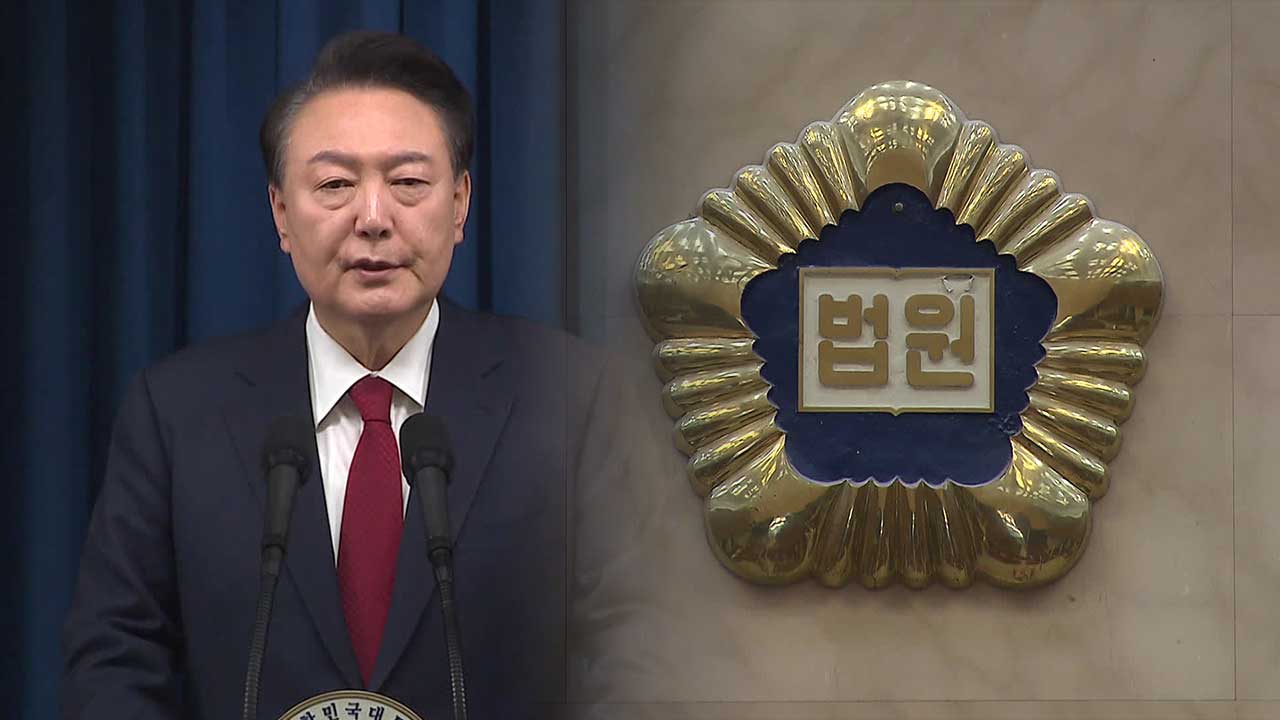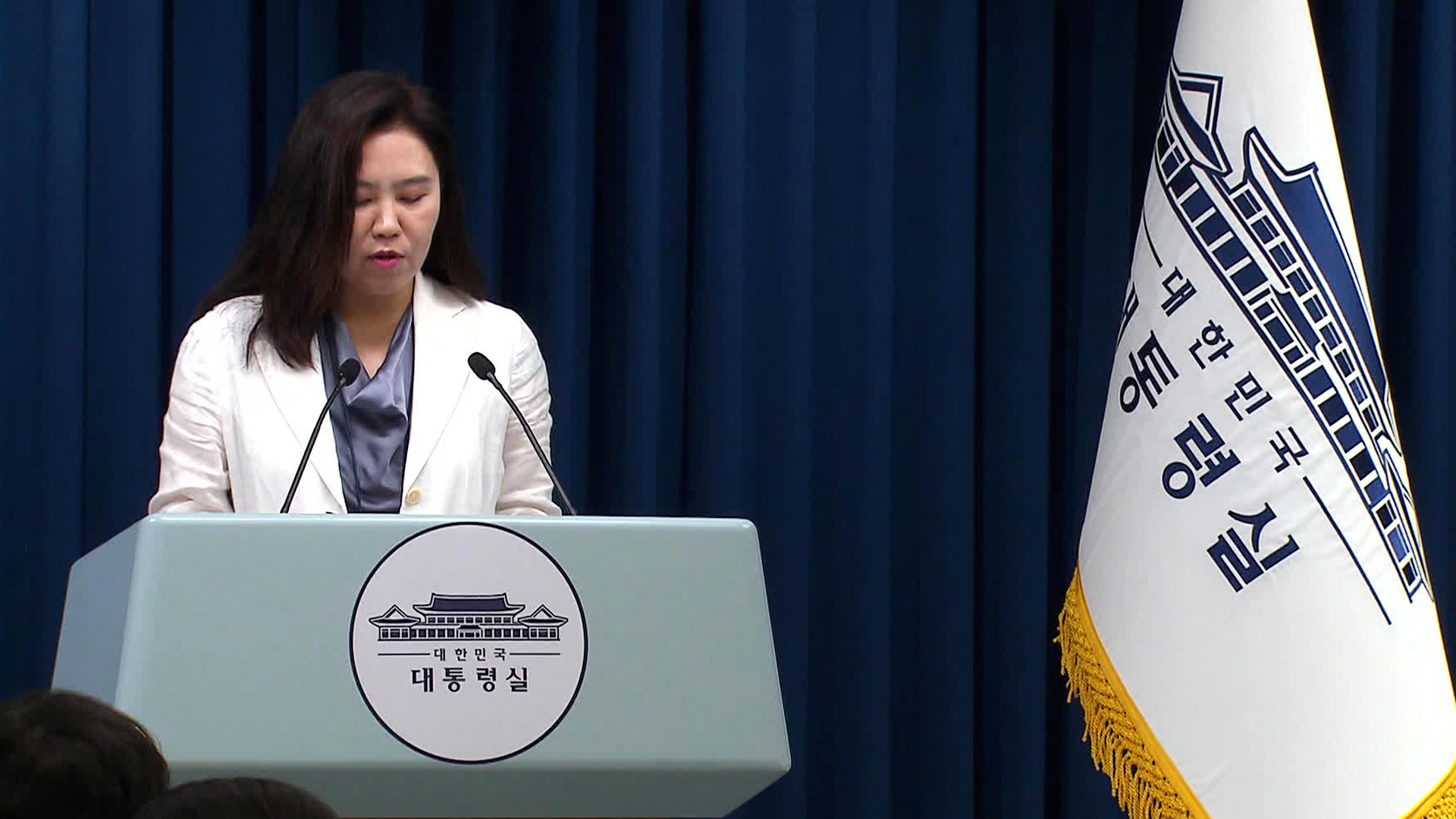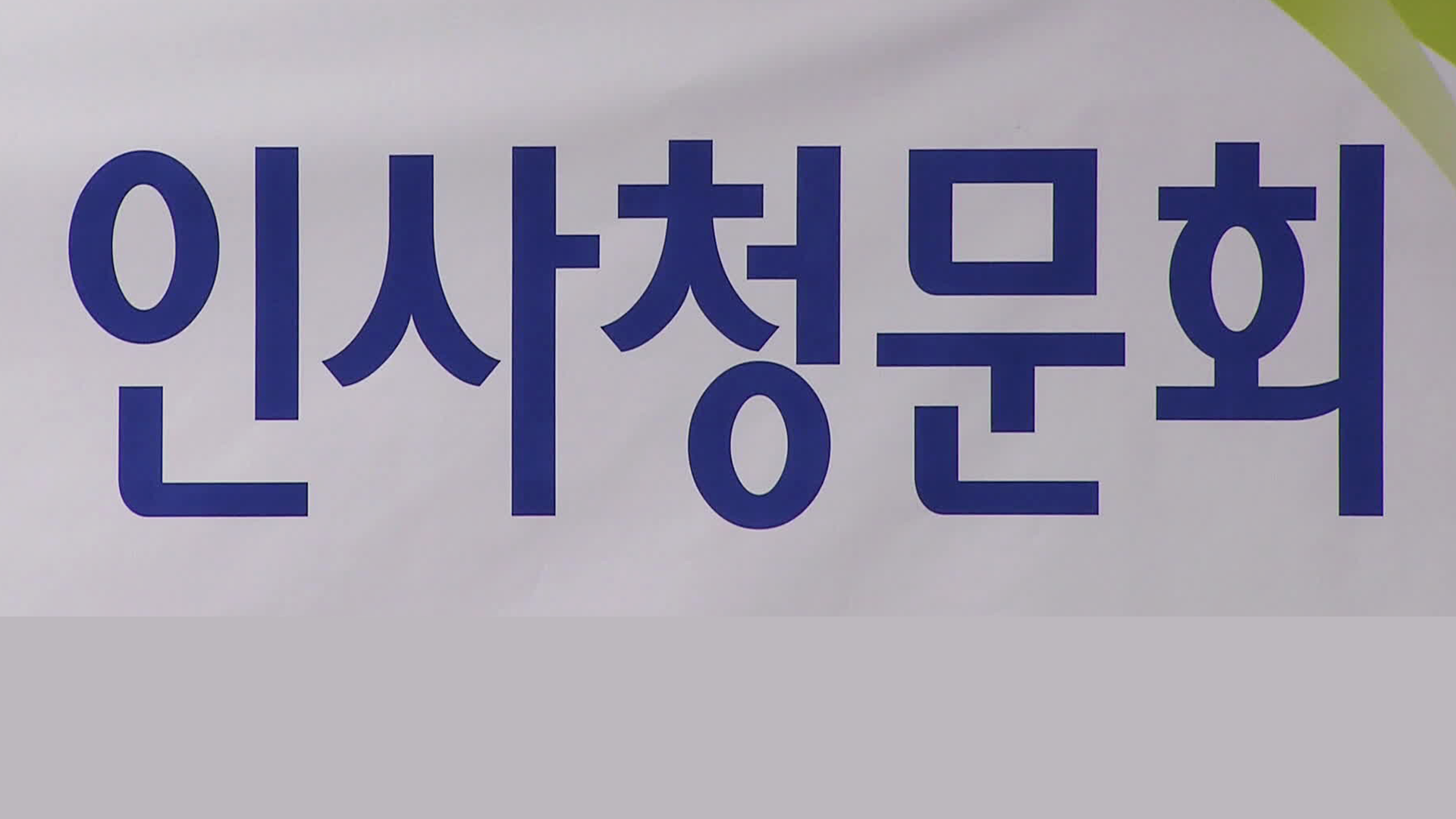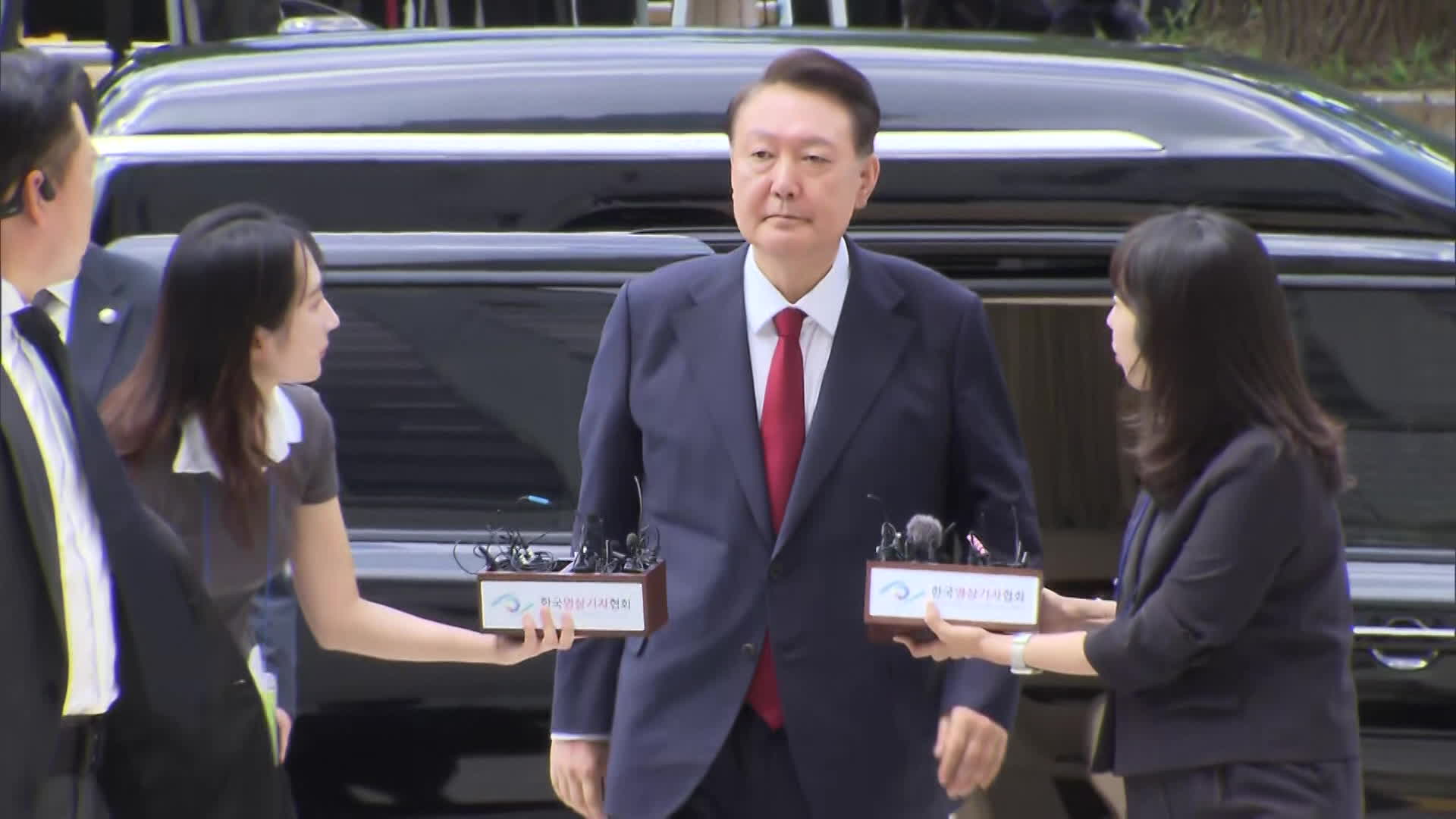Legal professionals: “Dec. 3 emergency martial law not an act of governance”
입력 2024.12.14 (00:15)
읽어주기 기능은 크롬기반의
브라우저에서만 사용하실 수 있습니다.
[Anchor]
President Yoon stated in a speech yesterday (12.12) that the declaration of emergency martial law is an act of governance and therefore not subject to judicial review.
He also denied allegations of insurrection.
To determine the validity of this claim, we sought the opinions of constitutional scholars and analyzed relevant judicial precedents.
Reporter Kim Beom-joo has the details.
[Report]
President Yoon Suk Yeol argued that the declaration of emergency martial law is an 'act of governance' and thus cannot be subject to judicial review.
["The president's exercise of the right to declare emergency martial law is an act of governance that is not subject to judicial review, similar to the exercise of the right to grant pardons or conduct foreign affairs."]
Former Defense Minister Kim Yong-hyun also presented a similar argument, claiming that the investigation into the emergency martial law is illegal.
Legally, an 'act of governance' refers to actions taken by the president and others to determine the direction of national policy, allowing for broad discretion and the potential to refrain from applying laws.
This includes the president's exclusive powers such as the right to grant pardons, as well as past actions like the dispatch of troops to Iraq and inter-Korean summits.
On the other hand, the implementation of the financial real-name system, emergency measures during the Yushin regime, and the expansion of martial law by the new military government were deemed by the courts to be subject to judicial review due to violations of the constitution and laws, even if they were considered acts of governance.
[Kim Seon-taek/Professor at Korea University Law School: "When the infringement of basic rights is serious, the Constitutional Court has ruled that it will conduct judicial review regarding cases of basic rights infringement."]
In particular, the constitution and laws strictly define the requirements for declaring martial law.
The opposition's 'legislative and budgetary overreach' mentioned by President Yoon does not meet these requirements, leading the legal community to generally conclude that this declaration of martial law cannot be seen as a legitimate act of governance.
[Jeong Tae-ho/Professor at Kyung Hee University Law School: "The authority to cut the budget lies with the National Assembly. This is a form of checks and balances on the president, carried out according to the procedures defined by the constitution. So who would consider this an emergency situation?"]
Some in the legal community interpret President Yoon's claims, which contradict the constitution and case law, as an appeal to rally his support base.
This is KBS News, Kim Beom-joo.
President Yoon stated in a speech yesterday (12.12) that the declaration of emergency martial law is an act of governance and therefore not subject to judicial review.
He also denied allegations of insurrection.
To determine the validity of this claim, we sought the opinions of constitutional scholars and analyzed relevant judicial precedents.
Reporter Kim Beom-joo has the details.
[Report]
President Yoon Suk Yeol argued that the declaration of emergency martial law is an 'act of governance' and thus cannot be subject to judicial review.
["The president's exercise of the right to declare emergency martial law is an act of governance that is not subject to judicial review, similar to the exercise of the right to grant pardons or conduct foreign affairs."]
Former Defense Minister Kim Yong-hyun also presented a similar argument, claiming that the investigation into the emergency martial law is illegal.
Legally, an 'act of governance' refers to actions taken by the president and others to determine the direction of national policy, allowing for broad discretion and the potential to refrain from applying laws.
This includes the president's exclusive powers such as the right to grant pardons, as well as past actions like the dispatch of troops to Iraq and inter-Korean summits.
On the other hand, the implementation of the financial real-name system, emergency measures during the Yushin regime, and the expansion of martial law by the new military government were deemed by the courts to be subject to judicial review due to violations of the constitution and laws, even if they were considered acts of governance.
[Kim Seon-taek/Professor at Korea University Law School: "When the infringement of basic rights is serious, the Constitutional Court has ruled that it will conduct judicial review regarding cases of basic rights infringement."]
In particular, the constitution and laws strictly define the requirements for declaring martial law.
The opposition's 'legislative and budgetary overreach' mentioned by President Yoon does not meet these requirements, leading the legal community to generally conclude that this declaration of martial law cannot be seen as a legitimate act of governance.
[Jeong Tae-ho/Professor at Kyung Hee University Law School: "The authority to cut the budget lies with the National Assembly. This is a form of checks and balances on the president, carried out according to the procedures defined by the constitution. So who would consider this an emergency situation?"]
Some in the legal community interpret President Yoon's claims, which contradict the constitution and case law, as an appeal to rally his support base.
This is KBS News, Kim Beom-joo.
■ 제보하기
▷ 카카오톡 : 'KBS제보' 검색, 채널 추가
▷ 전화 : 02-781-1234, 4444
▷ 이메일 : kbs1234@kbs.co.kr
▷ 유튜브, 네이버, 카카오에서도 KBS뉴스를 구독해주세요!
- Legal professionals: “Dec. 3 emergency martial law not an act of governance”
-
- 입력 2024-12-14 00:15:25

[Anchor]
President Yoon stated in a speech yesterday (12.12) that the declaration of emergency martial law is an act of governance and therefore not subject to judicial review.
He also denied allegations of insurrection.
To determine the validity of this claim, we sought the opinions of constitutional scholars and analyzed relevant judicial precedents.
Reporter Kim Beom-joo has the details.
[Report]
President Yoon Suk Yeol argued that the declaration of emergency martial law is an 'act of governance' and thus cannot be subject to judicial review.
["The president's exercise of the right to declare emergency martial law is an act of governance that is not subject to judicial review, similar to the exercise of the right to grant pardons or conduct foreign affairs."]
Former Defense Minister Kim Yong-hyun also presented a similar argument, claiming that the investigation into the emergency martial law is illegal.
Legally, an 'act of governance' refers to actions taken by the president and others to determine the direction of national policy, allowing for broad discretion and the potential to refrain from applying laws.
This includes the president's exclusive powers such as the right to grant pardons, as well as past actions like the dispatch of troops to Iraq and inter-Korean summits.
On the other hand, the implementation of the financial real-name system, emergency measures during the Yushin regime, and the expansion of martial law by the new military government were deemed by the courts to be subject to judicial review due to violations of the constitution and laws, even if they were considered acts of governance.
[Kim Seon-taek/Professor at Korea University Law School: "When the infringement of basic rights is serious, the Constitutional Court has ruled that it will conduct judicial review regarding cases of basic rights infringement."]
In particular, the constitution and laws strictly define the requirements for declaring martial law.
The opposition's 'legislative and budgetary overreach' mentioned by President Yoon does not meet these requirements, leading the legal community to generally conclude that this declaration of martial law cannot be seen as a legitimate act of governance.
[Jeong Tae-ho/Professor at Kyung Hee University Law School: "The authority to cut the budget lies with the National Assembly. This is a form of checks and balances on the president, carried out according to the procedures defined by the constitution. So who would consider this an emergency situation?"]
Some in the legal community interpret President Yoon's claims, which contradict the constitution and case law, as an appeal to rally his support base.
This is KBS News, Kim Beom-joo.
President Yoon stated in a speech yesterday (12.12) that the declaration of emergency martial law is an act of governance and therefore not subject to judicial review.
He also denied allegations of insurrection.
To determine the validity of this claim, we sought the opinions of constitutional scholars and analyzed relevant judicial precedents.
Reporter Kim Beom-joo has the details.
[Report]
President Yoon Suk Yeol argued that the declaration of emergency martial law is an 'act of governance' and thus cannot be subject to judicial review.
["The president's exercise of the right to declare emergency martial law is an act of governance that is not subject to judicial review, similar to the exercise of the right to grant pardons or conduct foreign affairs."]
Former Defense Minister Kim Yong-hyun also presented a similar argument, claiming that the investigation into the emergency martial law is illegal.
Legally, an 'act of governance' refers to actions taken by the president and others to determine the direction of national policy, allowing for broad discretion and the potential to refrain from applying laws.
This includes the president's exclusive powers such as the right to grant pardons, as well as past actions like the dispatch of troops to Iraq and inter-Korean summits.
On the other hand, the implementation of the financial real-name system, emergency measures during the Yushin regime, and the expansion of martial law by the new military government were deemed by the courts to be subject to judicial review due to violations of the constitution and laws, even if they were considered acts of governance.
[Kim Seon-taek/Professor at Korea University Law School: "When the infringement of basic rights is serious, the Constitutional Court has ruled that it will conduct judicial review regarding cases of basic rights infringement."]
In particular, the constitution and laws strictly define the requirements for declaring martial law.
The opposition's 'legislative and budgetary overreach' mentioned by President Yoon does not meet these requirements, leading the legal community to generally conclude that this declaration of martial law cannot be seen as a legitimate act of governance.
[Jeong Tae-ho/Professor at Kyung Hee University Law School: "The authority to cut the budget lies with the National Assembly. This is a form of checks and balances on the president, carried out according to the procedures defined by the constitution. So who would consider this an emergency situation?"]
Some in the legal community interpret President Yoon's claims, which contradict the constitution and case law, as an appeal to rally his support base.
This is KBS News, Kim Beom-joo.
-
-

김범주 기자 category@kbs.co.kr
김범주 기자의 기사 모음
-
이 기사가 좋으셨다면
-
좋아요
0
-
응원해요
0
-
후속 원해요
0















이 기사에 대한 의견을 남겨주세요.